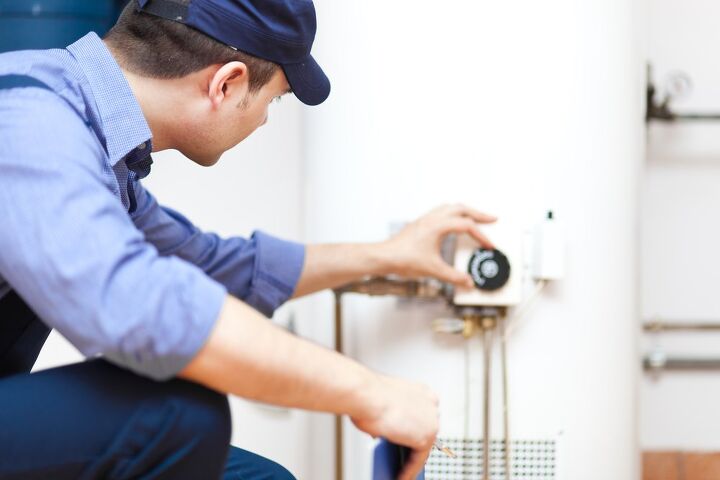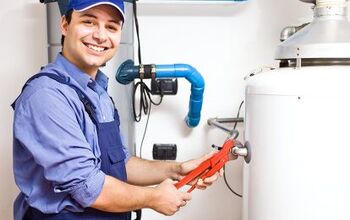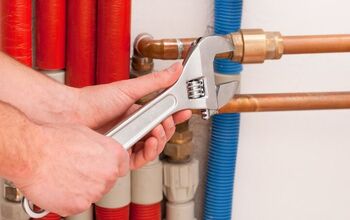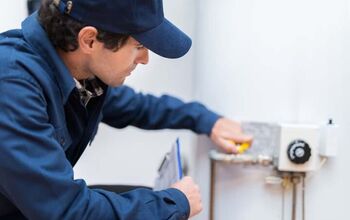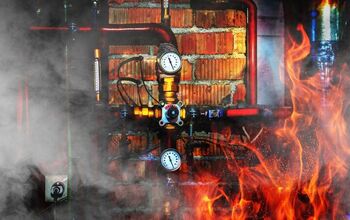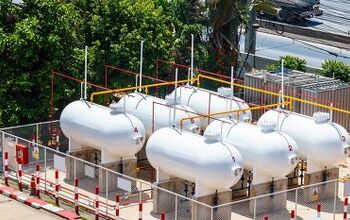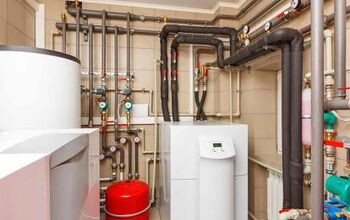Water Heater Keeps Running? (Possible Causes & Fixes)

Water heaters have become essential at-home appliances. Modern water heaters are now equipped with a range of useful, high-tech functions, which means delivering hot water consistently has never been easier.
But when a water heater continuously runs, this is not the system being efficient, but actually a problem that should be addressed immediately, either by the homeowner or a professional plumber. To know what makes a water heater run continuously, as well as solutions to this problem, read on!
Leaks, poor insulation, sediment buildup, years of wear and tear, and loose connections can all cause a water heater to run continuously. Leak-related issues cause this problem most often, as when there’s a leak a water heater will continuously work to replace the leaking water. Addressing this problem will in all likelihood require help from a professional plumber.
Do You Need Water Heater Repair Services?
Get free, zero-commitment quotes from pro contractors near you.

What Causes a Water Heater to Keep Running?
Several things can cause a water heater to keep running. If you can’t diagnose the problem on your own, get help from a professional. Water heaters can be dangerous appliances if you don’t know how to safely tinker with them.
There May Be a Leak Somewhere
If your water heater’s tank is leaking, then your system will be constantly replacing the leaking water. There may also be a leak in the pipes which your water heater utilizes. If either your water heater or the connected pipes are leaking, along with a continuously running system, you may also notice:
- A pool of water under or around the water heater.
- Insufficient hot water supply.
- A smell of rotten eggs emanating from the water heater.
If the first and second indications are found, then it’s best to get a professional plumber out to your property ASAP. If you experience indication number three, air out your house immediately by opening all doors and windows. Next, call the fire department.
A smell of rotten eggs—unless you’re cleaning out the refrigerator—typically indicates a gas leak that must be taken seriously.
Your Water Heater May Have Poor Insulation
A problem with your water heater’s insulation could also cause the system to run continuously. After all, if the water in the tank can’t stay hot after it’s heated, the system will constantly have to keep reheating the water.
If your water heater’s insulation needs improvement, you should consider wrapping your water heater in additional insulation. For an electric system, insulating under the tank will be necessary as well; doing so will prevent heat from going into the floor.
Fixing your water heater’s insulation is good for other reasons too. For example, you could reduce your hot water heater’s energy consumption by as much as nine percent. Standby heat loss is something all water heaters experience to some degree, but if you improve your system’s insulation you could reduce your system’s standby heat loss by almost 50%.
There May Be Sediment Buildup
If your water heater has been running for months, it’s likely sediment buildup has already taken hold somewhere. This is normal, and removing sediment buildup isn’t all that hard if you know your way around your system. Minerals, salts, and debris all build up on the bottom of a water heater, and often sediment buildup is exacerbated by infrequent tank draining.
Sediment buildup will cause a water heater to not run properly eventually, and one of the key indications of sediment buildup is a system not heating powerfully enough while running continuously.
Sediment buildup can also be quite corrosive, and just because it’s typically at the bottom of a water heater’s tank doesn’t mean it can’t spread to nearby pipes as well. These corrosive materials can damage these components over time, and they may even be what causes leaks in the future.
Keep This in Mind When Dealing With Sediment Buildup
If you have to drain your system to get rid of sediment buildup, keep in mind that over-draining your system could be damaging as well. Therefore, when you drain your system, take time to make sure all the sediment buildup is gone, as this way you won’t have to drain your system’s tank for awhile.
If you don’t know how to tackle the buildup on your own, a professional plumber will be happy to help you.
Wear and Tear May Have Finally Got the Best of Your System
Most water heaters will last about 10 to 12 years. Some excellently maintained systems will last longer than 15 years. If your water heater is getting up there in age, this could be why your system is continuously heating water.
Sometimes, the components just stop working as they should. And if a major component—like a gas burner—just gives out after being reliable for years, then the system won’t be able to heat water properly and therefore it will continuously run to address this inadequacy.
If your system is starting to malfunction because it’s old, repair may not be the best option. System replacement may be the more affordable option in this case, and it’ll definitely save you from a lot of headaches; you won’t have to worry about system repairs for awhile, most likely, if you get a new water heater.
There Are Loose Connections
Your water heater may not have been installed correctly—or maybe something got dislodged during a previous repair—and now you discover there are loose connections. If pipe fittings, valves, and/or the tank are not secure, water will flow right through these loose connections and likely cause major flooding.
This is another-leak related issue, as leaks are the most common culprits behind continuously running water heaters.
If you have the tools and know-how to address the loose connections on your own, do so. Otherwise, get help from a professional. In any case, the water needs to be off when you’re working on pipes or the water heater itself.
While this point seems like a no-brainer, some are so concerned when discovering a malfunctioning water heater, they fail to take proper precautions before addressing their systems.
Fixing a Water Heater When It Keeps Running
Before you attempt to see what’s wrong with your water heater, you need to turn off the power that’s running to your water heater. Also, don’t ever fiddle with a water heater if you don’t know what you’re doing. A water heater can be dangerous, and you may also damage your system unknowingly.
When you hear your water heater humming and there’s no end in sight, there are a few things you can do on your own before you need to get help from a professional plumber. First, you should check around the floor where your water heater is located. If there’s a pool of water, then it’s almost certain that a leak has sprung somewhere.
If there is no leak, then further examination of the system will be required, and this is when someone who has experience and proper training should be contacted. A professional could also handle a leak for you.
Addressing Valves and Pipes
There could also be a problem with the temperature pressure relief valve, and this component can be found near the top of the system, close to the water outlet joint. If there is leaking water coming from here, just tighten the valve. If this doesn’t work, then it’s likely replacement will be necessary.
You can also look at the pipes and see if the pipe fittings need o be tightened. If tightening doesn’t stop a leak, investing in new pipe fittings should be done. A broken gasket can also be what’s causing a water heater leak.
Do You Need Water Heater Repair Services?
Get free, zero-commitment quotes from pro contractors near you.

Related Questions
Since so many homeowners and business owners have water heaters on their properties these days, there are a lot of questions about how water heaters work. A couple common water heater questions, which pertain to this article’s topic, are answered below.
Can a tankless gas-powered water heater run constantly?A tankless gas-powered water heater can run continuously as well, but here the cause for such a malfunction is not the same as that which causes a traditional tank water heater to run continuously.
It’s been said numerous times already—when a tank water heater runs continuously, it’s often because there’s a leak somewhere. But since there’s no water to hold for a tankless water heater, it is near impossible for a leak to occur. When a gas-powered tankless water heater runs consistently, it’s usually because there’s a problem with the wiring or circuitry.
How Much Will It Cost to Run a Water Heater Continuously?A water heater that’s running constantly should never be accepted as normal. This is a malfunction and it must be treated as such. If your system runs constantly, then it’s going to be consuming a lot of water while also burning a lot of fuel.
This combination of consumption will show up in your energy and water bills, and when it does you’ll be shocked at the financial damage a malfunctioning water heater can cause. That’s but one reason why a malfunctioning water heater must be addressed ASAP.

Matt loves everything DIY. He has been learning and practicing different trades since he was a kid, and he's often the first one called when a friend or family member needs a helping hand at home. Matt loves to work with wood and stone, and landscaping is by far his most favorite pastime.
More by Matthew Mountain



